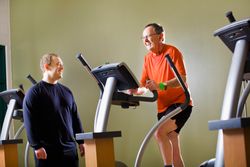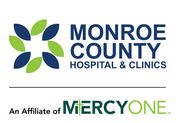A Brief Guide to Understanding Cardiac Rehabilitation

Heart attacks are scary, but it may help to know that many people survive such incidents and continue to lead healthy lives. However, survivors of heart attacks and other often-fatal complications must take steps to prevent future episodes. Your cardiologist may have recommended cardiac rehabilitation services to help with recovery, and it’s natural to have questions. Use this guide to find the answers to some of the most frequently asked questions.
4 FAQ About Cardiac Rehabilitation
Why is it needed?
Cardiac rehabilitation services are outpatient programs designed for patients who have suffered a heart attack, or who have had surgeries for heart valve repair, coronary artery grafting, stent placement, or heart transplants.
These events, in addition to other health conditions and lifestyle habits, leave the heart in a susceptible state. The goal of rehabilitation services is to strengthen the heart muscles and educate the patient, so they enjoy a healthier future.
Who is part of the team?
Due to the need for a lifestyle change following a heart attack or surgery from heart disease, there are several specialists included on the recovery team. Some of the individuals who will assist you throughout the program will consist of your physician or cardiologist, nurses, physical trainers, a nutritionist, occupational therapist, and psychologist. These specialists will all work together to create a plan for your recovery.
What are sessions like?
 Patients usually enroll in a 36-session program, meeting with specialists three times each week. The health care team will first assess your heart health and the amount of stress it can handle. To do so, they will monitor your heart function while you perform light exercises. Activities could include riding a stationary bike and walking on a treadmill.
Patients usually enroll in a 36-session program, meeting with specialists three times each week. The health care team will first assess your heart health and the amount of stress it can handle. To do so, they will monitor your heart function while you perform light exercises. Activities could include riding a stationary bike and walking on a treadmill.
A physician will encourage you to make smart lifestyle changes, like quitting smoking, to help lower your risk of future complications. Your nutritionist will guide you in a health-healthy diet, and a mental health professional will help you manage any fears or anxieties about your recent surgery or cardiac event.
What are the benefits?
Cardiac rehabilitation may reduce your risk of dying from heart disease by 25%, according to some studies. Rehab patients also reduce their heart attack risk by 28%.
Patients find that the one-on-one approach makes it easier to discuss their concerns and learn from the rehabilitation team. By making healthy lifestyle changes such as quitting smoking, increasing physical activity, and changing your diet, you can prevent or reduce your risk of heart disease.
If you’re ready to explore cardiac rehabilitation options, contact Monroe County Hospital & Clinics. This Albia, IA, health care center provides 24/7 emergency room treatment to patients and includes a skilled and diverse staff. Call (641) 932-2134 to find radiologist services, family doctors, surgeons, and more. Connect on Facebook to receive news and updates or visit their website to learn more about the hospital.
About the Business
Have a question? Ask the experts!
Send your question

